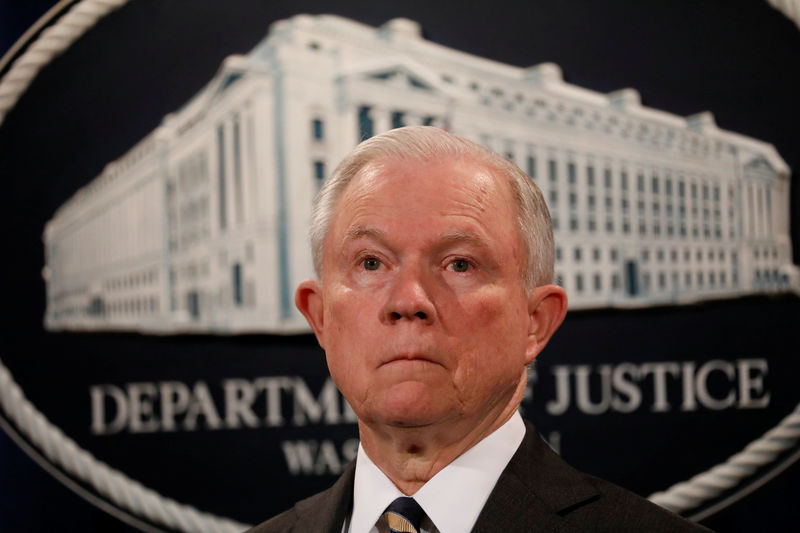By Julia Edwards Ainsley
WASHINGTON (Reuters) - U.S. Attorney General Jeff Sessions on Thursday released a government form dealing with contacts he has had with foreign nationals, including Russian government officials, but much of it was redacted.
Form SF-86, required for government employees working in national security, indicated Sessions has had no immediate contact with any foreign government or its representatives in the past seven years.
However, Sessions has said he met with Russian ambassador Sergey Kislyak in the run-up to the 2016 U.S. presidential election.
A large portion of the document was left blank.
“As a United States Senator, the Attorney General met hundreds, if not thousands, of foreign dignitaries and their staff. In filling out the SF-86 form, the Attorney General’s staff consulted with those familiar with the process, as well as the FBI investigator handling the background check, and was instructed not to list meetings with foreign dignitaries and their staff connected with his Senate activities," said Justice Department spokesman Ian Prior.
Sessions released the form in response to a lawsuit filed by American Oversight, a group that advocates for government transparency and sued DOJ in April after the extent of Sessions' contact with the Russian government was called into question.
Austin Evers, executive director of American Oversight, said the form was evidence that Sessions lied to the FBI investigators overseeing his security clearance.
"Jeff Sessions is our nation's top law enforcement officer, and it is shocking one of his first acts after being named Attorney General was to lie to the FBI on an issue of national security," Evers said.
Sessions recused himself from the federal investigation into Russian meddling in the election after media reports revealed he held undisclosed meetings with Kislyak. Sessions admitted to having the interactions, but said they were held in his capacity as a U.S. senator, a position he occupied for 20 years before becoming attorney general.
Former FBI Director James Comey, whom Trump fired in May, testified that his agency had information on Sessions that would lead them to believe his continued involvement in the federal probe would be "problematic."
It was later reported that Sessions had another undisclosed interaction with Kislyak at the Mayflower Hotel in Washington in April 2016. Sessions told the Senate Intelligence Committee that he had no recollection of the interaction.
Special Counsel Robert Mueller, a former director of the Federal Bureau of Investigation is now leading the investigation into Russian meddling in the election.

Read the full document http://tmsnrt.rs/2ueV9Ct